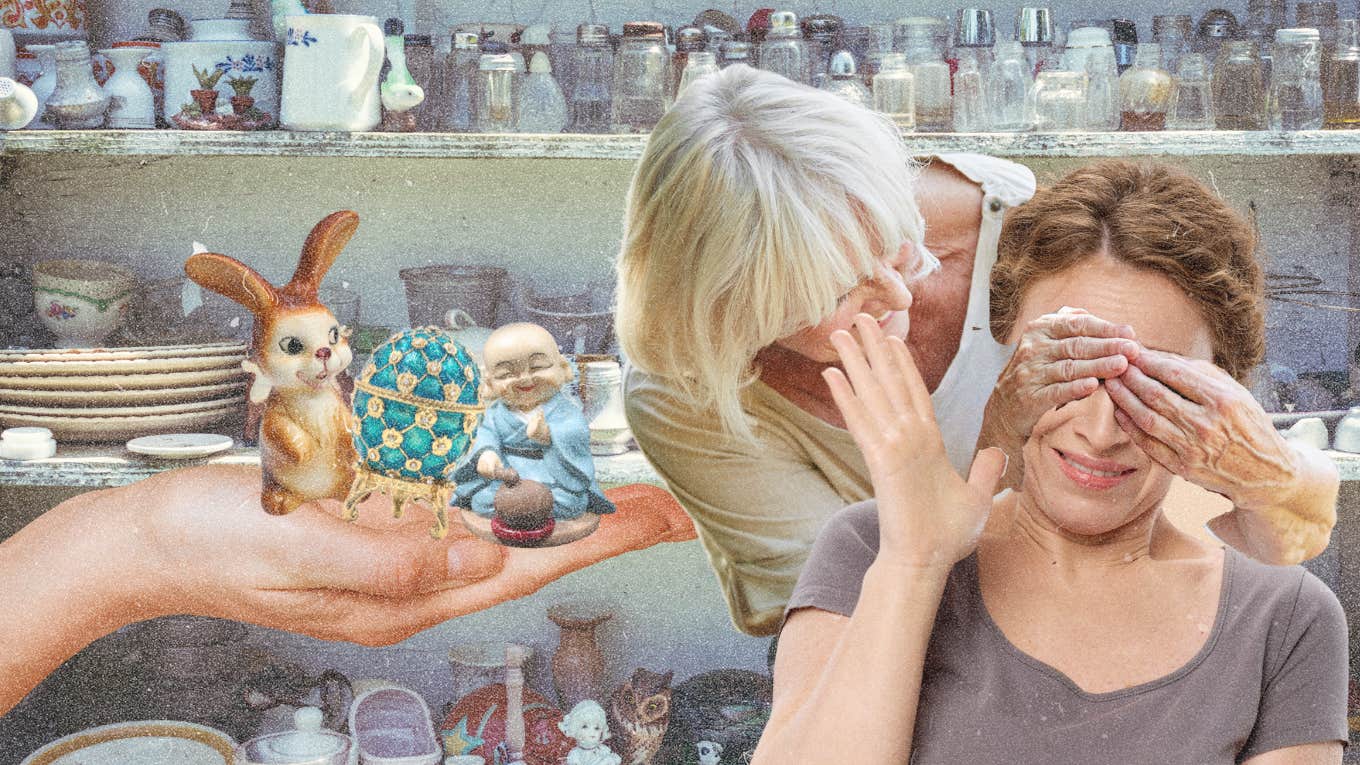My Mother Has Been Death-Cleaning For Decades
There will be no haggling over her possessions once she’s gone — she made sure of that.
 Valerie Loiseleux, SHOTPRIME, Billion Photos, ESezer, shaunl, amnachphoto, Robert Kneschke | Canva
Valerie Loiseleux, SHOTPRIME, Billion Photos, ESezer, shaunl, amnachphoto, Robert Kneschke | Canva There’s plenty of space for the menacing figures of my mother’s hallucinations.
Her living room is filled with shadows and little else.
Don’t assume she recently went on a death-cleaning spree and got rid of everything to make it easier for those she leaves behind.
No, she’s been death-cleaning for most of her adult life.
She’s been an extreme minimalist for decades — emptiness is her preferred home decor.
Compulsive decluttering, anti-hoarding, or Obsessive Compulsive Spartanism are all used to describe the excessive desire to remove objects from one’s home or living area and are thought to be connected to OCD, Obsessive Compulsive Disorder.
I have friends who’ve spent weeks, if not years, cleaning out a house after their parents died.
It will take two hours max to clear out my mother’s house after she dies.
Once hospice comes to collect her hospital bed, wheelchair, shower chair, and supplies, there will only be a few pieces of furniture, kitchenware, and several Chinese ceramic drum stools.
Getting rid of, tossing out, or giving away items are stress relievers for her.
For decades, my Christmas presents from my mother were boxes of discarded goods like half-eaten cheese, a heel of stale bread, monogrammed stationary with her initials, large paperclips, a broken stapler, a formerly green sweater, and a seed catalog from two years before.
She kept the local thrift stores in merchandise, her trash cans full, and when she thinned out her irises, she put the extra plants and anything else she could find under her tree on the parkway with a sign that said, "Free."
While her anxiety remains, my mother doesn’t have the same access to stuff removal she once had.
My niece had the brilliant idea to buy some cheap items that my mother could throw out in stressful times. However, bringing these things into the house might initially be triggering for my mother.
After a long campaign of getting rid of things, there’s not much for my mother to remove from her home.
"You’re all fired," my mother shouted at the four women in the room. Possessions aren’t the only things that count as clutter for my mother — people do, too.
It was the shift change with her caregivers and the home health aide who was also there to bed-bathe my mother.
Four people plus the ghosts that populate my mother’s bedroom made my mother feel overwhelmed.
Since she could no longer physically throw anything out, my mother needed to emotionally dispose of someone to help relieve her anxiety.
Before, she’d write breakup letters to her friends and me.
Now, she can’t hold a writing utensil and is dependent on visitors, so she asserts control by firing people.
After she cools down, she rehires them.
We let her believe she has this power to keep her balanced.
Only this time, the firing didn’t calm her down, and she threatened to hit the home health aide.
This was not okay.
Hospice was notified, the health aide took the afternoon off, and my mother was sedated.
She hasn’t threatened violence again, but we’ve learned not to fill her room with living and breathing humans.
Then came the move that ruined everything.
My mother loved her friend Dixie’s caregiver, Seema. When Dixie died right when my mother needed care, hiring Seema was the perfect solution.
Five days before Seema started working for my mother, she and her husband moved their possessions into my mother’s house. They assumed that because my mother didn’t have much furniture or knick-knacks they could use her empty rooms as storage.
My mother watched silently as Seema’s husband and friend loaded up first the bedroom earmarked for them and then every available space they could find.
The truckload of stuff was bad enough, but when an industrial freezer was plugged in and placed in my mother’s dining room, I thought my mother would explode.
Once everything was in place, Seema and her husband went to Utah for the weekend.
For two days and nights, my mother fumed, growing more agitated by the minute. By the time Seema returned, she no longer had a job or a place to stay.
Once my mother’s anxiety and anger had passed, she admitted she’d acted hastily. She was still surprised that Seema didn’t want to be her friend if she wasn’t her caregiver.
"Mom gave me the pretty yellow flower picture on the wall," Rachel, one of my mother’s caregivers told me. "Would you like it?"
"Uh, no, that’s fine, you take it," I said.
"Don’t you want a remembrance of your mom," Rachel asked.
I laughed. "I have a whole houseful of remembrances of my mom."
Since she’s been death-cleaning for decades, my niece, my nephews, and my sister-in-law all have a ton of my mother’s stuff. So, there’ll be no haggling over her possessions once she’s gone — she made sure of that.
As far as the ghosts that populate my mother’s house now — she can take them with her.
Christine Schoenwald is a writer, performer, and frequent contributor to YourTango. She's had articles featured in The Los Angeles Times, Salon, Bustle, Medium, Huffington Post, Business Insider, and Woman's Day, among many others.

